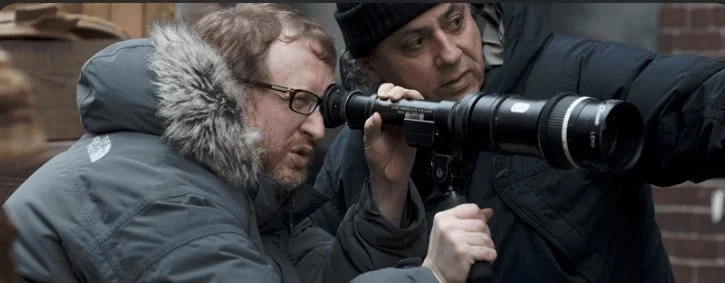It’s not that shocking to learn that James Gray is not a fan of comic book movies. The writer-director’s brand of cinema is very classicist and adheres to a style of filmmaking that is quickly becoming obsolete at the multiplex.
Speaking to the New Yorker, Gray had this to say about the infantilism of the genre [via Jordan Hoffman:
Fairly blunt. Take note, if you’re James Gray’s physician, or dentist, you probably shouldn’t ask him about the upcoming “Black Panther: Wakanda Forever.”
Gray has a very good movie being released on 10.28, his most personal one yet, it’s titled “Armageddon Time” and I’ll be talking more about that one in the next week or so. It’s a perfect addition to a filmography that already includes excellence such as “Two Lovers,” “Lost City of Z,” and “We Own the Night.”
While we’re at it. Alan Moore, creator of the legendary comic graphic novel “Watchmen,” which revolutionized the superhero genre, is now warning people about their fascination with superhero movies. So much so that he believes the infantilism that has arisen because of the genre might lead to a much easier transition to fascism. I’m not joking [via The Guardian]:
“Hundreds of thousands of adults [are] lining up to see characters and situations that had been created to entertain the 12-year-old boys – and it was always boys – of 50 years ago,” said Moore. “I didn’t really think that superheroes were adult fare. I think that this was a misunderstanding born of what happened in the 1980s – to which I must put my hand up to a considerable share of the blame, though it was not intentional – when things like ‘Watchmen’ were first appearing. There were an awful lot of headlines saying ‘Comics Have Grown Up’. I tend to think that, no, comics hadn’t grown up. There were a few titles that were more adult than people were used to. But the majority of comics titles were pretty much the same as they’d ever been. It wasn’t comics growing up. I think it was more comics meeting the emotional age of the audience coming the other way. I said around about 2011 that I thought that it had serious and worrying implications for the future if millions of adults were queueing up to see Batman movies. Because that kind of infantilization – that urge towards simpler times, simpler realities – that can very often be a precursor to fascism.”
Criticizing adult fans of superhero movies is not out of our ballpark for us, and it neither is for some of the world’s best filmmakers.
Over these last few years, I’ve been updating a list of all the directors that have publicly criticized Marvel movies. We can now add James Gray’s name to this very impressive list that includes Martin Scorsese, Francis Ford Coppola, Denis Villeneuve, Bong Joon-ho, Lucrecia Martel, David Cronenberg, Alejandro Gonzalez Inarritu, David Fincher, Paul Verehoeven, Terry Gilliam, Ridley Scott, Jane Campion, James Mangold, Martin McDonagh, Luc Besson, William Friedkin, Ken Loach, and John Woo.
Of course, there will always be exceptions to the rule. Over the years, I’ve found shades of greatness in some DC/Marvel movies: Sam Raimi’s “Spider-Man 2,” Christopher Nolan’s “The Dark Knight Trilogy,” Jon Favreau’s “Iron Man,” James Mangold’s “Logan,” and The Russo’s “Captain America: Winter Soldier.”







